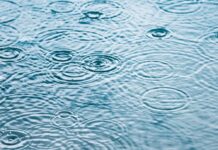Struggling to sleep despite feeling exhausted? If you have ADHD, you’re not alone. Research shows that many individuals with attention-deficit/hyperactivity disorder experience sleep difficulties, and this connection impacts both nighttime rest and daytime functioning. This article explores the link between ADHD and sleep, outlines common disturbances, and provides nine practical tips for better sleep.
Why Do ADHD and Sleep Clash?
Sleep problems are incredibly common among people with ADHD, affecting as many as 70–80%. This isn’t a coincidence; it’s rooted in how ADHD impacts brain chemistry.
ADHD influences the regulation of dopamine and norepinephrine, neurotransmitters crucial for the body’s natural sleep-wake cycle (circadian rhythm). Disruptions in these chemicals can lead to irregular rhythms, making it difficult for the brain to signal when it’s time to wind down or wake up. The mental restlessness that many with ADHD experience in the evening can further exacerbate these challenges.
It’s also worth noting that coexisting conditions like anxiety, depression, and restless legs syndrome can add complexity, making restorative sleep even more elusive.
Four Common Sleep Disturbances in People with ADHD
While the causes of ADHD-related sleep problems can be complex, certain patterns consistently emerge:
- Difficulty Falling Asleep: Many describe a mind that goes into overdrive at bedtime, filled with racing thoughts, creative ideas, and heightened sensory awareness.
- Restless or Disrupted Sleep: Staying asleep can be just as difficult. Frequent awakenings, tossing and turning, and vivid dreams are common. Underlying sleep disorders like restless legs syndrome or periodic limb movements can also fragment sleep.
- Delayed Sleep Phase (“Night Owl”): ADHD is strongly linked to a preference for later bedtimes and wake times, leaving individuals feeling most alert and focused in the evening.
- Daytime Sleepiness: After a restless or delayed night, fatigue can significantly impact daily life, making it challenging to function at school, work, or social events.
The Ripple Effect: How Sleep Disturbances Impact Your Waking Life
While a poor night’s sleep affects everyone, the consequences can be particularly pronounced for individuals with ADHD:
- Focus and Attention: Lack of rest impairs the brain’s ability to filter distractions, making tasks requiring focus much more difficult.
- Emotional Regulation: Sleep deprivation increases reactivity, leading to more intense frustration, irritability, and mood swings.
- Memory and Learning: Sleep plays a vital role in memory consolidation. Without adequate rest, recalling information or learning new concepts becomes a struggle.
- Impulsivity and Risk-Taking: Fatigue diminishes the brain’s ability to pause and consider consequences, leading to increased impulsivity and potentially risky behaviors.
- Physical Health: Chronic sleep problems impact hormones, stress levels, and immunity, increasing the risk of long-term health issues such as weight fluctuations and cardiovascular problems.
9 Tips for Better Rest When You Have ADHD
While managing sleep with ADHD can be challenging, there are effective strategies to build better sleep habits. Here are nine tips to help you rest better:
- Screen for Other Sleep Disorders: Snoring, gasping in your sleep, headaches, or a persistent feeling of being unrefreshed despite sleeping could indicate an underlying sleep disorder like obstructive sleep apnea. Talk to your doctor to rule out or address these issues, potentially exploring CPAP machines or referrals to a sleep clinic.
- Adjust Your Body Clock Deliberately: Establishing a consistent wake-up time (even on weekends) and exposing yourself to 30–60 minutes of bright natural light first thing in the morning can naturally shift your circadian rhythm. Dimming the lights 2–3 hours before bed can also help.
- Create a Gentle Wind-Down Routine Tailored to Your Brain: ADHD brains benefit from clear cues and closure. Try a 20–40 minute wind-down ritual: finishing a small task (like washing dishes), creating a quick to-do list for the next day, and then shifting to a low-effort activity like reading, taking a shower, or cuddling with a pet.
- Minimize Evening Stimulation: Reduce exposure to screens, and switch to more calming content like audiobooks or nature videos.
- Optimize Your Sleep Environment: Keep your bedroom cool, dark, and quiet. Aim for a temperature between 60–67°F, use blackout curtains, and consider a white-noise machine. Eye masks, earplugs, and lip balm can also provide comfort.
- Incorporate Movement into Your Day: Regular physical activity can promote tiredness and improve sleep. Try a 10–20-minute morning walk or some gentle yoga during your lunch break. Avoid vigorous workouts close to bedtime.
- Time Your Caffeine and Alcohol Carefully: Many people with ADHD find that setting a caffeine curfew around 6–8 hours before bed can improve sleep. Avoid alcohol close to bedtime, as it can disrupt sleep and lead to early-morning awakenings.
- Strategize Naps: If you feel the need for a nap, try a “coffee nap” – sip coffee and immediately lie down to wake up as the caffeine takes effect. If naps disrupt your nighttime sleep, try a non-sleep rest: close your eyes, breathe slowly, and stretch for 10 minutes.
- Create Morning Cues: Make waking up easier by stacking cues: use a sunrise alarm, set smart plugs to turn on lights and a kettle, or play music you only use in the mornings. Make mornings more enjoyable by listening to a favorite podcast or watching a sitcom.
ADHD and Sleep: Frequently Asked Questions
Why do people with ADHD have sleep problems?
The root causes are multifaceted. Neurologically, ADHD impacts neurotransmitters like dopamine and norepinephrine, influencing the sleep-wake cycle. Combined with racing thoughts, heightened sensory awareness, and potential coexisting conditions, sleep disruption becomes more likely.
What are the most common sleep disturbances for ADHD?
Difficulty falling asleep, restless sleep, a delayed sleep phase (“night owl”), and daytime sleepiness are prevalent. These patterns can be ongoing and significantly impact both nighttime and daytime function.
Does poor sleep worsen ADHD symptoms?
Yes. Sleep deprivation affects the same brain networks challenged by ADHD, impairing attention, memory, and self-regulation. Lack of sleep leads to increased difficulty focusing, heightened emotional reactivity, and more impulsivity.
Can ADHD medication affect sleep quality?
It’s complicated. Stimulant medications can sometimes improve sleep by reducing late-night hyperactivity, but may also delay sleepiness. Non-stimulant medications might have different effects. Work closely with your doctor to optimize timing and dosage.
What treatments help with ADHD sleep issues?
A combination of behavioral interventions (like CBT-I, consistent routines), circadian rhythm support (light therapy, melatonin), and medication adjustments (if necessary) can be effective. Addressing any coexisting sleep disorders is also crucial.
Disclaimer: This information is intended for general knowledge and informational purposes only, and does not constitute medical advice.




















